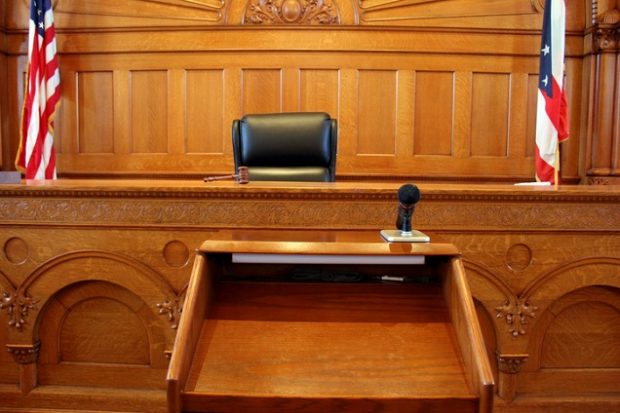
Litigators
often
need
to
engage
the
services
of
expert
witnesses
while
prosecuting
or
defending
certain
types
of
cases.
Sometimes,
experts
are
needed
to
inform
a
fact
finder
about
complicated
matters
related
to
a
case,
and
in
other
circumstances,
an
expert
is
needed
for
a
party
to
prove
its
basic
case.
Dealing
with
expert
witnesses
is
not
something
that
lawyers
learn
on
the
bar
exam,
or
as
an
associate
attorney,
but
working
with
experts
can
mean
the
difference
between
victory
or
failure
in
a
given
case.
Lawyers
can
keep
certain
things
in
mind
to
make
the
best
use
of
experts
during
litigation.
Fixed
Fees
Clients
often
complain
to
lawyers
about
counsel
fees
and
how
unpredictable
invoices
can
be
for
a
given
legal
matter.
However,
experts
can
be
even
more
unpredictable
with
their
fees,
and
they
are
not
subject
to
many
of
the
same
record-keeping
requirements
as
lawyers. Moreover,
experts
often
have
more
leverage
when
it
comes
to
having
their
fees
paid
since
experts
(unlike
lawyers)
can
usually
terminate
their
involvement
with
a
case
at
any
given
time.
I
have
dealt
with
experts
who
charged
more
to
read
a
deposition
transcript
than
I
spent
taking
the
very
same
deposition
and
exhibit
other
billing
practices
that
were
hard
to
justify. Since
experts
can
bill
clients
for
an
inordinate
amount
of
money,
negotiating
a
fixed
fee
with
experts,
whenever
possible,
usually
makes
sense. Fixed
fees
are
commonplace
when
it
comes
to
experts
who
routinely
give
certain
types
of
reports,
although
hourly
rates
may
apply
to
testimony.
However,
I
have
found
that
many
great
experts
will
agree
to
a
fixed-fee
for
all
kinds
of
experts.
Fixed
fees
can
keep
the
client
happy
and
can
also
ensure
that
experts
do
not
go
overboard
and
bill
in
an
unpredictable
fashion.
Written
Conversations
Lawyers
should
keep
in
mind:
minimize
the
amount
of
written
conversations
and
document
exchanges
you
have
with
experts. Although
communications
with
experts
and
counsel
may
be
privileged,
this
might
not
apply
if
third
parties
are
also
present
in
communications.
In
addition,
in
some
jurisdictions,
the
materials
provided
to
experts
are
discoverable
by
other
parties
to
the
litigation.
In
still
other
situations,
drafts
of
expert
reports
might
be
discoverable.
Lawyers
and
experts
should
try
to
minimize
the
amount
of
content
that
is
discoverable
by
other
parties
to
litigation.
Even
if
such
materials
are
innocuous,
they
might
be
twisted
to
create
a
narrative
that
does
not
favor
a
client.
Having
phone
calls
and
zoom
meetings
rather
than
written
communication
is
often
the
best
way
to
minimize
the
generation
of
discoverable
material.
Listen
To
Experts
In
many
situations,
experts
are
not
only
useful
for
the
testimony
or
reports
they
provide,
but
about
their
suggestion
for
strategies
to
pursue. Experts
often
have
a
better
understanding
of
complicated
subject
matters
than
lawyers
themselves,
and
experts
can
be
useful
when
it
comes
to
advancing
arguments
in
litigation.
For
instance,
I
once
hired
an
expert
to
produce
a
report
that
supported
a
theory
of
the
case
I
created.
However,
the
expert
had
theories
of
her
own
that
added
to
the
claims
I
wanted
to
make
in
the
litigation.
This
gave
us
a
much
better
chance
at
victory
in
the
litigation,
and
I
credited
the
expert
with
theories
of
liability
that
I
did
not
originally
consider
when
evaluating
the
case.
All
told,
experts
can
be
extremely
useful
when
it
comes
to
prosecuting
or
defending
claims
in
litigation.
With
a
few
suggestions
in
mind,
lawyers
can
ensure
they
best
use
the
services
of
experts
without
drawbacks
that
might
sometimes
exist
when
engaging
those
experts
in
litigation.
Jordan
Rothman
is
a
partner
of
The
Rothman
Law
Firm,
a
full-service
New
York
and
New
Jersey
law
firm.
He
is
also
the
founder
of
Student
Debt
Diaries,
a
website
discussing
how
he
paid
off
his
student
loans.
You
can
reach
Jordan
through
email
at
[email protected].

